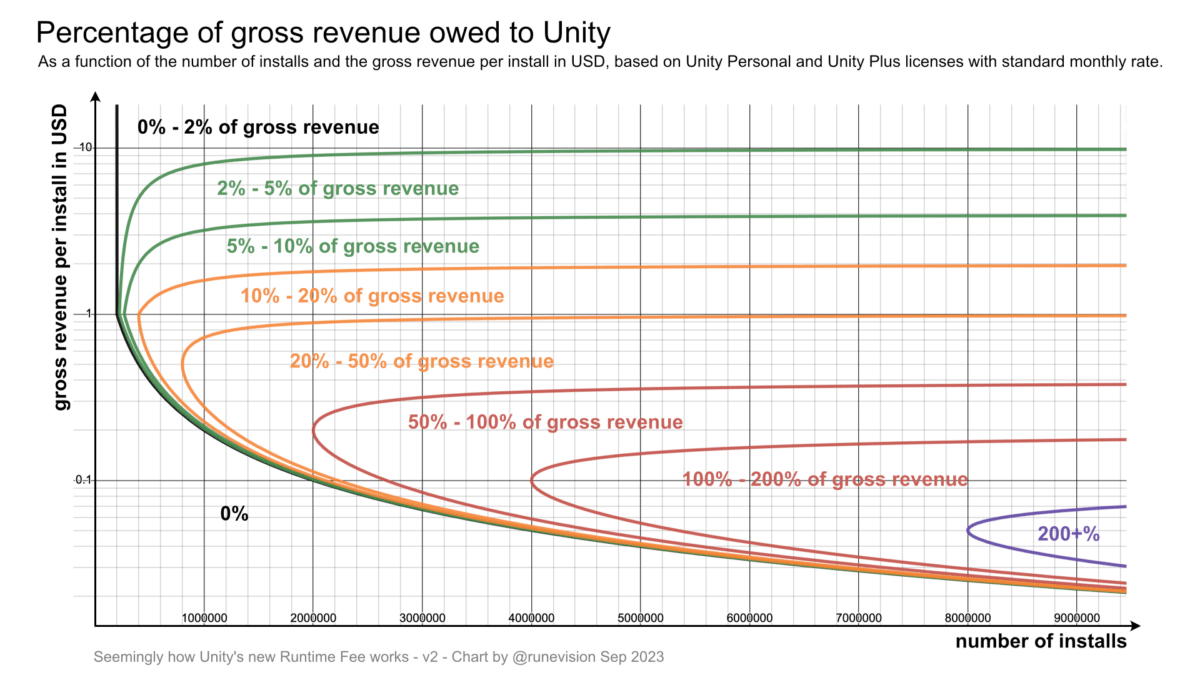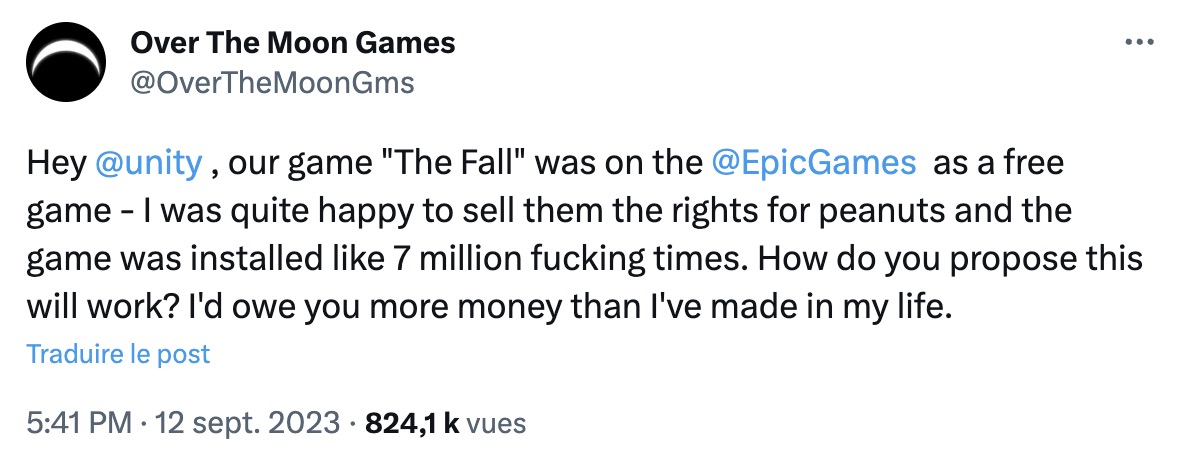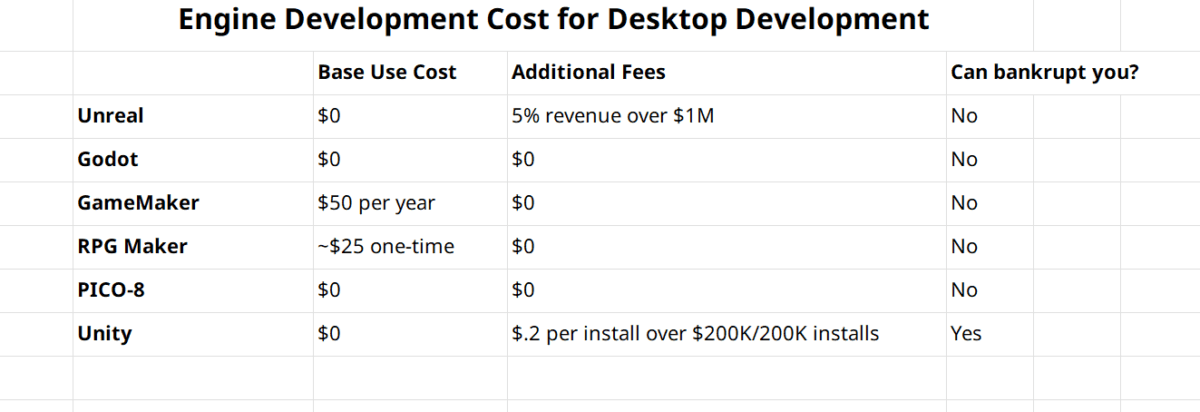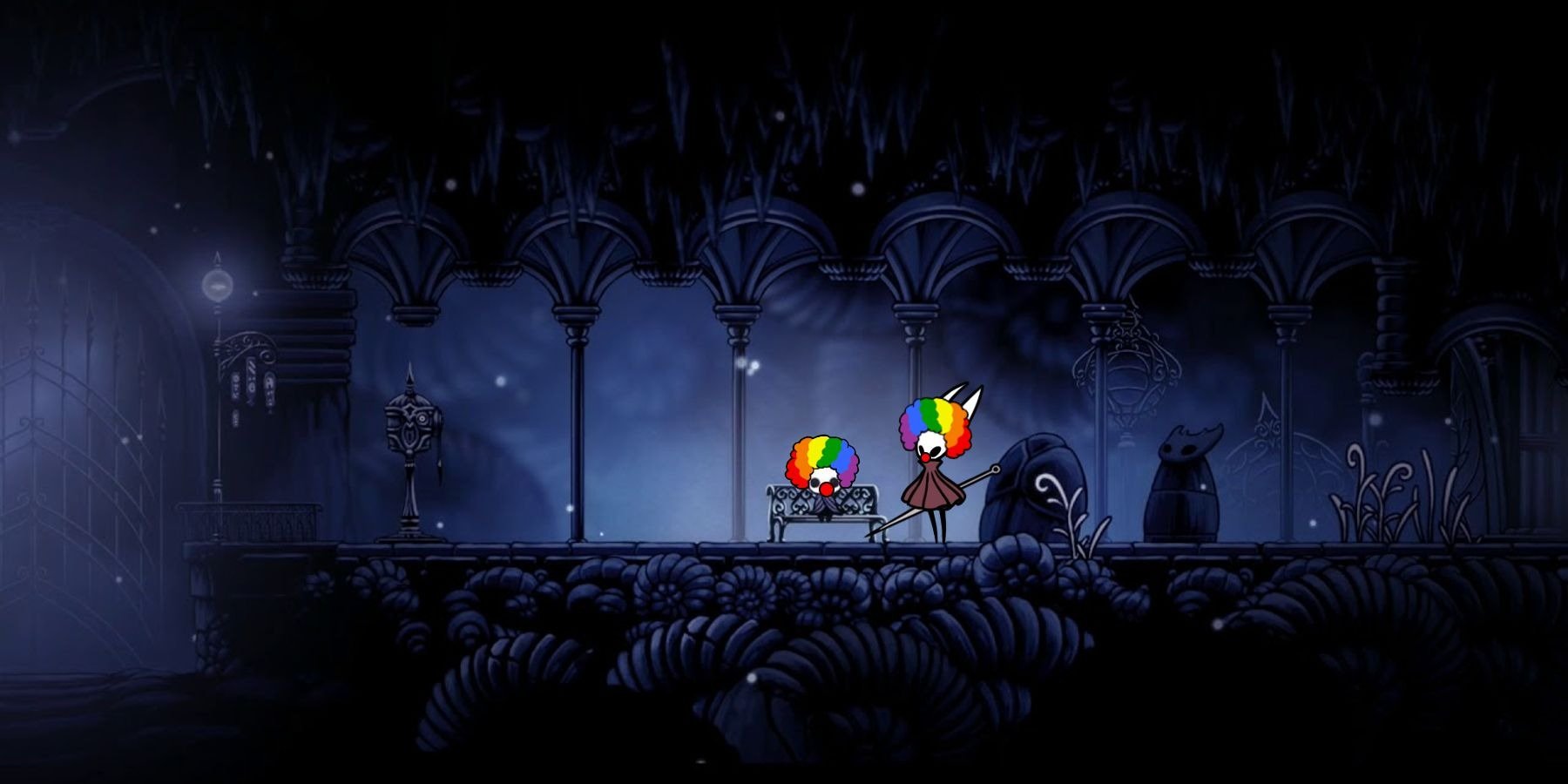The hugely popular Unity game engine has announced new terms of service that are deemed both ridiculous and dangerous for developers around the world. The engine demanded payment for each installation of a game, enough to put any studio out of business.
Unity is one of the most popular game engines in the world. You have certainly already played video games created with Unity: Among Us, Subnautica, Cuphead, Pokemon Go or Hollow Knight, Rust And Ori And The Blind Forest. This game creation tool is easy to use and therefore allows many independent developers to start creating their first game.
The engine announced this Tuesday, September 12, at the same time as the Apple conference, new conditions of use for its engine. Conditions which could lead to the bankruptcy of developers as they were ridiculous for the reality of marketing a video game in 2023. Since then, Unity has reversed course on certain changes, but not all.
Pay for each installation of a game
To understand the panic that gripped the video game sector on the night of Tuesday September 12 to Wednesday 13, we must understand the ridiculousness of the new conditions revealed by Unity. From January 1, 2024, the engine wants to implement “installation fees” for games developed with the engine. This change will be retroactive for games already released before January 1.
From a certain level, $200,000 over 12 months of turnover for Unity Personal and Plus and 200,000 installations, and $1 million for Unity Pro and Enterprise and 1 million installations, developers will have to pay a fee for each installation of a game.
Understand: the development studio must pay a fee to Unity each time a player installs the game in question. Uninstalling and reinstalling the game? New billing. Worse, these new measures also apply to games present in services such as Xbox Game Pass, free demos, free games (giveaways) and game bundles for a charitable cause. We’re not even talking about free-to-play games whose economic model is based on free installation.
The reaction was immediate on social networks, with a part of mockery open in the face of such a change considered so ridiculous, and more in-depth analyzes to highlight the fundamental problems of this policy change.

On Mastodon, Rune Skovbo Johansen notably offers a quick calculation of the share of turnover that the developer must pay based on the number of installations of his game. According to his calculation, from 4 million installations, the developer owes Unity 100% or more of its revenue.
Outcry among developers
Developers of the most popular games on the market using Unity quickly spoke out against this change by the engine. The developers of Cult of the Lamb have, for example, threatened to withdraw their game from commerce from January 1, 2024. Others have mentioned a transition to Epic Games’ Unreal Engine, even if it means postponing the release of their next game.

The Over The Moon Games studio testified that a temporary free release of their game The Fall on the Epic Game Store resulted in 7 million installations. With the new pricing policy imposed by Unity, the studio would have a debt greater than the entire income of the creator of the studio since its birth.
Unity steps back… a little
Faced with the outcry and the ire triggered by the announcement, Unity wanted to “clarify” its new policy without changing its substance. Thus, the company declared to from Axios that charitable game packs would not be affected by this change. Likewise, game demos will also be exempt.
Furthermore, uninstalling and reinstalling the same game for the same player would not incur additional costs. The fear was that ill-intentioned players could carry out this operation in a loop to lead any studio to bankruptcy.
However, Unity specifies that installation on several devices will result in several billings. For example, installing the same game on Xbox, PC and a Steam Deck counts as three different installations.
Concerning the presence of games in services allowing mass installation such as Xbox Game Pass, Unity believes that the invoice should be sent to the distributor, here Microsoft. We imagine that the Redmond firm is delighted to learn that it will have to pay fees for the installation of each Unity game present in its catalog which exceeds the threshold.
Many problems persist
Despite this timid attempt to put out the fire, developers may be far from happy.
First, there’s the big question of how Unity could detect installs. This of course raises questions about data confidentiality, even if Unity promises compliance with the GDPR, but also the compatibility of Unity games with DRM-free distribution. Does a shared or pirated game result in invoicing for the developer? How can Unity detect it? The firm remains very opaque on the subject: “ we use our own data model. We believe it can accurately determine the number of times execution time is distributed for a given project. » Moreover, the firm never explains how it intends to differentiate between games installed in an exempt framework (charitable bundle) or not.
Unity also indicates that a version of the game running on a browser (WebGL or WebGPU) or a cloud gaming version will be counted as an installation each time a user accesses it.
Beyond these (huge) details, the very principle of billing based on the number of installations of the game remains very problematic. It is not at all in line with the modern marketing of a video game which can be done for free or through a subscription, among other things.

Now there is hope that Unity will turn the clock back, but the trust between the engine and developers around the world seems irreparably broken. Competitors like Unreal Engine, Godot or GameMaker can rub their hands.
Want to join a community of enthusiasts? Our Discord welcomes you, it is a place of mutual help and passion around tech.
